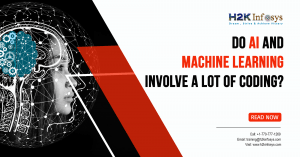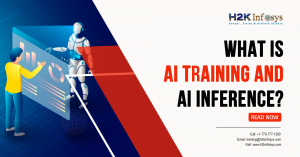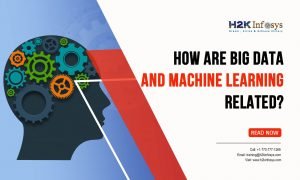Artificial Intelligence (AI) is no longer a futuristic concept it is here, shaping industries, redefining job roles, and creating career opportunities that didn’t exist a decade ago. From chatbots assisting customers to self-driving cars navigating traffic, AI has become an integral part of our daily lives. With this rapid growth comes a natural question many aspiring learners ask: Who can learn an Artificial Intelligence course?
The short answer is almost anyone with curiosity and a willingness to learn. But to give you clarity, let’s explore this question in depth. Whether you are a student, professional, entrepreneur, or even a career switcher, there’s a place for you in AI.
Why Artificial Intelligence Matters Today
Before we dive into the types of people who can learn AI, let’s understand why this skill is so crucial:
- Massive Career Opportunities: According to reports, AI-related jobs are among the fastest-growing worldwide, with roles like Machine Learning Engineer, AI Specialist, Data Scientist, and AI Product Manager in high demand.
- Global Relevance: AI is transforming sectors like healthcare, finance, marketing, education, automotive, and cybersecurity.
- High Salaries: AI professionals in the U.S. can earn anywhere between $90,000 to $150,000+ annually, depending on their expertise.
- Future-Proof Skill: As AI adoption increases, companies across industries need professionals who can design, implement, and maintain AI-driven systems.
This makes learning AI not just a career move but also a way to stay relevant in the digital age.
Who Can Learn an Artificial Intelligence Course?
AI may sound complex, but the good news is—it is not restricted to computer scientists alone. AI courses are designed for different entry levels, from absolute beginners to advanced professionals. Let’s break down who can learn AI and how.
1. Students in STEM (Science, Technology, Engineering, Mathematics)
- Why they’re suited: Students already pursuing degrees in computer science, engineering, mathematics, or statistics have the foundational skills needed for AI.
- Benefits: Learning AI alongside academics makes them industry-ready early, giving them a competitive edge in placements.
- Example Path: A computer science student can specialize in machine learning or natural language processing and secure roles as an AI Research Engineer.
2. Working IT Professionals
- Why they’re suited: Developers, software engineers, and data analysts already work with technologies related to AI.
- Benefits: Transitioning to AI roles helps them stay ahead in the competitive IT job market.
- Example Path: A software developer can upskill in deep learning frameworks like TensorFlow or PyTorch to become a Machine Learning Engineer.
3. Business and Non-Technical Professionals
Yes, even non-technical professionals can learn AI!
- Why they’re suited: They may not code, but they often need to understand AI concepts to manage teams or projects.
- Benefits: Managers, marketers, HR professionals, and entrepreneurs can apply AI insights in decision-making, strategy, and product innovation.
- Example Path: A marketing manager learning AI can use predictive analytics to optimize ad campaigns and improve ROI.
4. Career Switchers
- Why they’re suited: Many professionals from fields like finance, healthcare, operations, or even teaching are switching careers to AI because of higher demand and salaries.
- Benefits: AI offers a clear pathway for those wanting to pivot careers into technology.
- Example Path: A healthcare worker can upskill in AI for healthcare analytics and work with hospitals or health-tech startups.
5. Entrepreneurs and Startup Founders
- Why they’re suited: Entrepreneurs benefit immensely from AI knowledge when building tech-enabled startups.
- Benefits: They can design smarter products, leverage automation, and understand the possibilities of AI in business.
- Example Path: A founder in e-commerce can integrate AI recommendation systems to boost sales.
6. Researchers and Academics
- Why they’re suited: Research scholars exploring areas like robotics, cognitive science, linguistics, or neuroscience often use AI tools.
- Benefits: AI accelerates innovation in academic projects, leading to new discoveries.
- Example Path: A PhD student in biology can apply AI to genomic data analysis.
7. Beginners with No Prior Experience
This is the group that often hesitates the most but here’s the truth: even absolute beginners can learn AI.
- Why they’re suited: Many online AI courses are structured for beginners, starting with basics of Python, math, and AI concepts.
- Benefits: Anyone with dedication can build AI knowledge step by step.
- Example Path: A beginner can start with an AI fundamentals course and gradually move into applied machine learning.
Skills Needed to Learn an AI Course
While anyone can learn AI, there are some skills that make the journey smoother:
- Basic Mathematics:
- Knowledge of linear algebra, probability, and calculus helps understand algorithms.
- Programming Knowledge:
- Python is the most common language in AI. Basic coding is enough to start.
- Analytical Thinking:
- Ability to break down problems and think logically.
- Domain Knowledge:
- Understanding of your industry (e.g., finance, healthcare, retail) helps apply AI effectively.
- Curiosity & Persistence:
- AI is evolving; staying updated is essential.
Types of Artificial Intelligence Courses Available
Depending on your background, you can choose from different course formats:
- Beginner-Level AI Courses: Cover basics of AI, Python, and machine learning.
- Professional AI Certifications: Designed for IT professionals wanting to specialize.
- Domain-Specific AI Courses: AI in healthcare, finance, marketing, or cybersecurity.
- Advanced AI & Research Programs: Deep learning, reinforcement learning, robotics, NLP.
Practical Applications of AI for Different Learners
Let’s look at real-world AI applications based on who is learning:
- Students: Build AI-powered chatbots for academic projects.
- IT Professionals: Implement fraud detection systems in banking.
- Business Professionals: Use AI for customer segmentation.
- Career Switchers: Enter roles like AI Data Analyst or AI Consultant.
- Entrepreneurs: Launch AI-powered apps for retail or logistics.
- Researchers: Use AI in climate change prediction models.
- Beginners: Create simple AI models like image classifiers.
Step-by-Step Guide to Start Learning AI
Here’s a roadmap anyone can follow to begin an AI course:
- Step 1: Build Foundations
- Learn Python and basic statistics.
- Step 2: Take an Introductory AI Course
- Explore supervised learning, unsupervised learning, and AI basics.
- Step 3: Practice Projects
- Work on small datasets like predicting house prices or classifying emails.
- Step 4: Explore Specialized Areas
- Choose a niche like NLP, computer vision, or robotics.
- Step 5: Build a Portfolio
- Showcase AI projects on GitHub or LinkedIn.
- Step 6: Get Certified
- Earn certifications to validate your skills.
- Step 7: Apply for AI Jobs or Build Your Own Startup
Challenges Learners Might Face (and How to Overcome Them)
- Complex Math: Start with basics and use visual learning tools.
- Programming Fear: Python tutorials for beginners can make coding easy.
- Overwhelming Information: Follow structured learning paths instead of random resources.
- Time Management: Set aside consistent learning hours weekly.
Why Now Is the Best Time to Learn AI
- Companies are actively hiring AI professionals.
- Universities and training providers are offering accessible AI courses.
- Free resources, open-source libraries, and community forums make learning easier.
- AI is still growing, so early learners will benefit the most in the long run.
Key Takeaways
- Anyone can learn AI students, professionals, entrepreneurs, researchers, or beginners.
- Basic math, Python, and analytical skills are helpful but not mandatory to start.
- AI courses range from beginner-friendly to advanced, catering to diverse learners.
- Practical applications vary across industries, making AI versatile.
- With commitment, you can transition into high-paying, future-proof AI careers.
Conclusion
So, who can learn an Artificial Intelligence course?
The answer is simple you can. Whether you’re a student wanting a head start, a working professional aiming for a promotion, a non-technical manager seeking clarity, or someone entirely new to the field, AI welcomes learners from all walks of life.
Artificial Intelligence isn’t just about coding or algorithms it’s about solving problems, improving lives, and creating the future. With structured learning, hands-on practice, and curiosity, anyone can master AI.
If you’re ready to future-proof your career, now is the time to enroll in an Artificial Intelligence course and step into the world where technology meets intelligence.


























